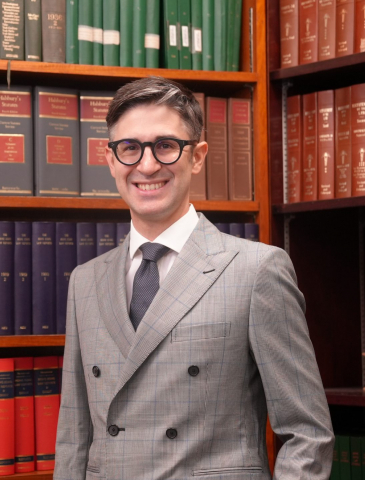Prof. Stefano Osella
Assistant Professor
PhD (EUI)
LLM (EUI)
MJur (Oxon)
LLB and MA in Law (Turin)
Biography
Stefano Osella is Assistant Professor at the Faculty of Law. He is a comparative public lawyer with wide-ranging interests in socio-legal theory, law and anthropology, human (particularly socio-economic) rights, and gender and the law. His primary focus is on the ways gender identity and sexual orientation are embedded and presupposed in constitutional law. More recently, Stefano has started researching the concept of care within constitutional law. Geographically, his focus is on Europe and South America. He has published extensively on these topics, and his articles have appeared in top-tier journals such as the International Journal of Constitutional Law and the German Law Journal, among others. Recently, his article “The Right to Gender Recognition before the Colombian Constitutional Court: A Queer and Travesti Theory Analysis” (co-authored with Ruth Rubio-Marín) received the prize for the best article of 2021 by the Society of Latin American Studies.
He is currently working on a monograph about the different forms of gender recognition in Europe. Stefano serves as the Chair of the Committee for Community and Engagement of the International Society of Public Law and holds the position of Associate Editor for the International Journal of Constitutional Law.
Stefano obtained his LLB and MA in law at the University of Turin, Italy. He continued his education at the University of Oxford, where he earned a Magister Juris, and at the European University Institute, where he obtained his doctorate in comparative law. Before joining HKU, Stefano worked as a postdoc at NYU Law School, where he was a Hauser Postdoctoral Fellow, the Max Planck Institute for Social Anthropology in Halle/Saale (Germany), and Bocconi University in Milan (Italy). Stefano’s main passions include literature—his favorite novels are Anna Karenina and One Hundred Years of Solitude—Greek tragedy, hiking, and history.

Research Area
- Comparative Public Law
- Constitutional Law
- Comparative Human Rights
- Law and Society
- Law and Culture

Research Area
- Comparative Public Law
- Constitutional Law
- Comparative Human Rights
- Law and Society
- Law and Culture
